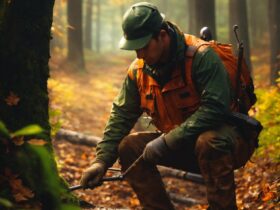When venturing into the wilderness, it’s important to be prepared with the right survival food in case of an emergency. Whether you’re an avid hiker, camper, or survivalist, having the right foods on hand can mean the difference between life and death. Here is an essential guide to survival food in the forest:
1. Protein-rich Foods: Protein is essential for maintaining energy levels and building strength. When in the forest, opt for protein-rich foods such as canned tuna, jerky, nuts, and seeds. These foods are portable, easy to store, and will keep you feeling satiated for longer periods of time.
2. High-energy Snacks: When in a survival situation, it’s important to have quick, high-energy snacks on hand. Pack foods like energy bars, trail mix, and dried fruit to keep your energy levels up throughout the day. These snacks are easy to carry and require no preparation, making them perfect for on-the-go eating.
3. Canned Goods: Canned goods are a great option for survival food in the forest. They are shelf-stable, easy to pack, and provide essential nutrients. Some good options include canned beans, vegetables, and soups. Just be sure to pack a can opener to access the food inside.
4. Water: While not a food item, water is crucial for survival in the forest. Always pack plenty of water or a water purification system to ensure access to clean drinking water. Dehydration can quickly lead to a decline in energy levels and cognitive function, so staying hydrated is key.
5. Foraging: In a survival situation, it may be necessary to forage for food in the forest. Learn to identify edible plants such as dandelions, wild berries, and mushrooms. Be sure to research and educate yourself on which plants are safe to eat and which to avoid. Foraging can provide essential nutrients and sustenance when traditional food sources are scarce.
6. Cooking Supplies: In the event that you need to cook food in the forest, be sure to pack cooking supplies such as a portable stove, cookware, and utensils. Consider lightweight options that are easy to carry in a backpack. Having the ability to cook food can provide warmth, comfort, and a sense of normalcy in a survival situation.
7. Emergency Rations: In addition to packing your own survival food, consider keeping emergency rations in your pack as a backup. These rations are designed to provide a quick source of energy and nutrition in case of an emergency. They have a long shelf life and are compact, making them ideal for survival situations.
In conclusion, being prepared with the right survival food in the forest is essential for staying safe and maintaining energy levels in a survival situation. By packing protein-rich foods, high-energy snacks, canned goods, water, foraging knowledge, cooking supplies, and emergency rations, you can be ready for anything that comes your way in the great outdoors. Stay prepared, stay safe, and happy exploring!





Leave a Reply